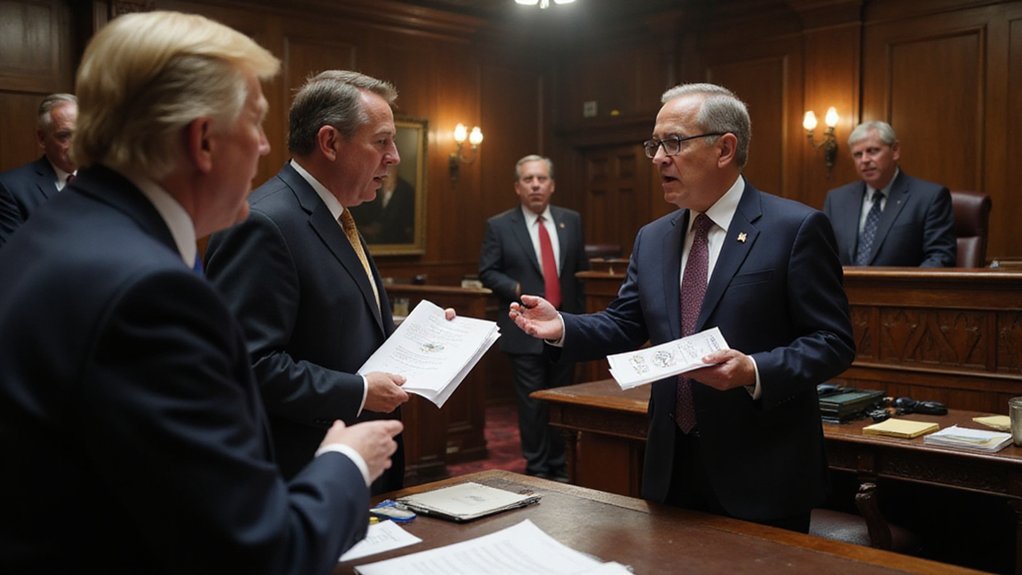The Senate’s 68-30 approval of the GENIUS Act on Tuesday represents a peculiar milestone in American financial regulation—one where stablecoin oversight becomes entangled with a sitting president’s crypto business ventures, creating the sort of regulatory theater that would have seemed implausible just a decade ago.
The Guiding and Establishing National Innovation for U.S. Stablecoins of 2025 Act emerged from the Senate Banking Committee in March with bipartisan support, targeting the $250 billion stablecoin market with federal regulatory clarity.
Yet what should have been straightforward financial infrastructure legislation became complicated when Trump’s World Liberty Financial struck a $2 billion stablecoin deal with an Abu Dhabi-backed firm—apparently for Binance investment purposes, because nothing says “America First” quite like Middle Eastern capital flowing through presidential crypto ventures.
Because nothing says “America First” quite like Middle Eastern capital flowing through presidential crypto ventures.
Democrats initially blocked the bill’s advancement in early May, citing concerns about corruption and conflicts of interest.
The optics were admittedly challenging: Trump declaring himself America’s first “crypto president” while simultaneously pursuing lucrative stablecoin arrangements creates exactly the kind of regulatory complexity that makes compliance officers reach for antacids.
Weeks of bipartisan negotiations followed, producing amendments addressing consumer protection, financial system stability, and national security safeguards.
These provisions apparently satisfied enough Democratic senators to secure passage, though concerns about bank business models and user privacy protections persist.
The legislation now moves to the House, with Trump hoping to sign it before the August recess—a timeline that suggests either remarkable legislative efficiency or the kind of rushed policymaking that produces unintended consequences.
The Senate Banking Committee Chairman praised the vote as a “bold step for American leadership,” though leadership in what exactly remains somewhat ambiguous.
What’s genuinely significant here transcends the political theatrics: federal stablecoin regulation represents legitimate progress for digital asset clarity.
The $250 billion market operates in regulatory limbo, creating uncertainty for institutions and consumers alike. Major financial institutions like JPMorgan announced their own stablecoin offerings on the same day as the Senate vote, signaling growing institutional confidence in the regulatory framework. The framework establishes requirements for stablecoins tied to assets, with officials now required to disclose stablecoin holdings over $5,000.
This regulatory development aligns with broader trends showing institutional adoption driving the crypto market’s evolution from speculation toward practical utility. Whether the GENIUS Act provides sufficiently robust oversight while accommodating presidential business interests will determine if this legislation represents genuine financial innovation or merely expensive political performance art masquerading as monetary policy.









